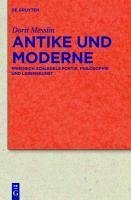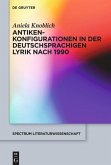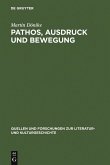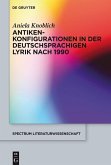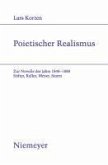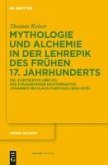The work shows the extent to which the thinking of Friedrich Schlegel was characterized by an intense examination of the literature, philosophy and religion of the ancient world? not only in the productive phase of Jena Romanticism, but far beyond that. It highlights the significance of this preoccupation with antiquity for the creation and development of early Romantic poetics and explores the importance of antiquity as a conceptual reference point for the cultural-philosophical, ethical, political and religious positions of Friedrich Schlegel.
Dieser Download kann aus rechtlichen Gründen nur mit Rechnungsadresse in A, B, BG, CY, CZ, D, DK, EW, E, FIN, F, GR, HR, H, IRL, I, LT, L, LR, M, NL, PL, P, R, S, SLO, SK ausgeliefert werden.
"Im Widerspruch zu jener Forschung, die immer noch die populäre These vom Bruch zwischen der revolutionären deutschen Frühromantik und der Tradition des Klassizismus vertritt, stellt sich Messlin mit Entschiedenheit und großer [...] Energie auf die Seite derer, die auch und gerade in der genialischen Epoche um 1800 die machtvolle Fortdauer antiker Philosophie und Literatur ebenso wie antiker Ideen von Freiheit udn Lebenskunst wirksam sehen."
Franz Nobert Mennemeier in: Germanistik Redaktion 2011, Band 52, Heft 1-2
Franz Nobert Mennemeier in: Germanistik Redaktion 2011, Band 52, Heft 1-2

